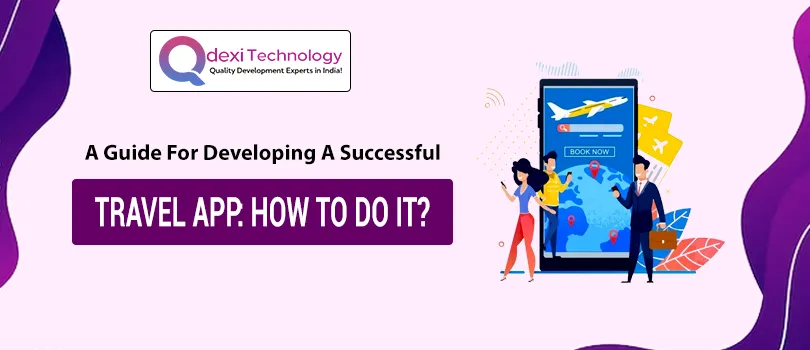In today's digitally-driven world, the travel industry has experienced a significant shift towards online platforms and mobile applications. With the increasing demand for convenience and efficiency, developing a successful travel app has become crucial for businesses in the travel sector. Whether you're a startup or an established player in the industry, creating a travel app that stands out requires careful planning, strategic implementation, and the right expertise. We'll go over the crucial actions and factors to take into account while creating a successful travel app in this guide.
Market Research and Analysis:
Prior to beginning the development process, a thorough analysis and research of the market must be done. Identify your target audience, understand their preferences, pain points, and expectations when it comes to travel planning and booking. Analyze the existing travel apps in the market, identify their strengths, weaknesses, and areas for improvement. This research will provide valuable insights to shape your app's features, functionality, and user experience.
Define Your Unique Value Proposition:
To stand out in a competitive market, your travel app must offer something unique and valuable to users. Define your app's unique value proposition – what sets it apart from existing solutions? Whether it's personalized recommendations, seamless booking experience, or exclusive deals and discounts, clearly communicate the benefits of using your app to attract and retain users.
Choose the Right Development Partner:
Partnering with a reliable web development company or web app development service provider is crucial for the success of your travel app. Look for a team with expertise in travel website development services and a proven track record of delivering high-quality mobile applications. Collaborate closely with your development partner to ensure your app aligns with your vision, goals, and user requirements.
Focus on User Experience (UX) Design:
User experience plays a pivotal role in the success of any mobile application, especially in the travel industry where users seek convenience and efficiency. Invest in intuitive UX design that prioritizes ease of navigation, seamless booking process, and visually appealing interface. Incorporate user feedback and usability testing throughout the development cycle to refine and improve the app's usability.
Integrate Essential Features and Functionalities:
When developing a travel app, it's essential to include a comprehensive set of features and functionalities that cater to the needs of travelers. Some essential features to consider include:
- Flight and hotel search and booking
- Itinerary management
- Real-time notifications and alerts
- GPS-based navigation and maps
- Secure payment gateways
- Customer support and assistance
Prioritize features that enhance the user experience and streamline the travel planning and booking process.
Ensure Seamless Integration with Third-Party APIs:
To enhance the functionality of your travel app, consider integrating with third-party APIs (Application Programming Interfaces) such as flight and hotel booking APIs, weather APIs, and payment gateways. Seamless integration with these APIs will provide users with access to real-time information and services, improving their overall experience.
Optimize for Performance and Security:
Performance and security are non-negotiable aspects of web development company, especially for travel apps dealing with sensitive user data and transactions. Optimize your app for speed, responsiveness, and reliability to ensure a seamless user experience. Implement robust security measures to protect user data and transactions, including encryption, secure authentication, and compliance with industry standards and regulations.
Implement Analytics and Monitoring Tools:
Once your travel app is live, implementing analytics and monitoring tools is crucial for tracking performance, user engagement, and app usage patterns. Analyze user behavior, feedback, and app metrics to identify areas for improvement and optimization. Regularly update and iterate on your app based on user insights and market trends to stay competitive.
Launch and Promote Your App:
Finally, launch your travel app on app stores and promote it through various channels to reach your target audience. Leverage digital marketing strategies such as social media marketing, search engine optimization (SEO), and app store optimization (ASO) to increase visibility and attract users. Encourage user reviews and ratings, and respond promptly to feedback to build trust and credibility.
In conclusion, developing a successful travel app requires careful planning, strategic execution, and a focus on delivering exceptional user experiences. By following the steps outlined in this guide and partnering with the right development team, you can create a travel app that delights users, drives engagement, and achieves your business objectives in the competitive travel industry.






